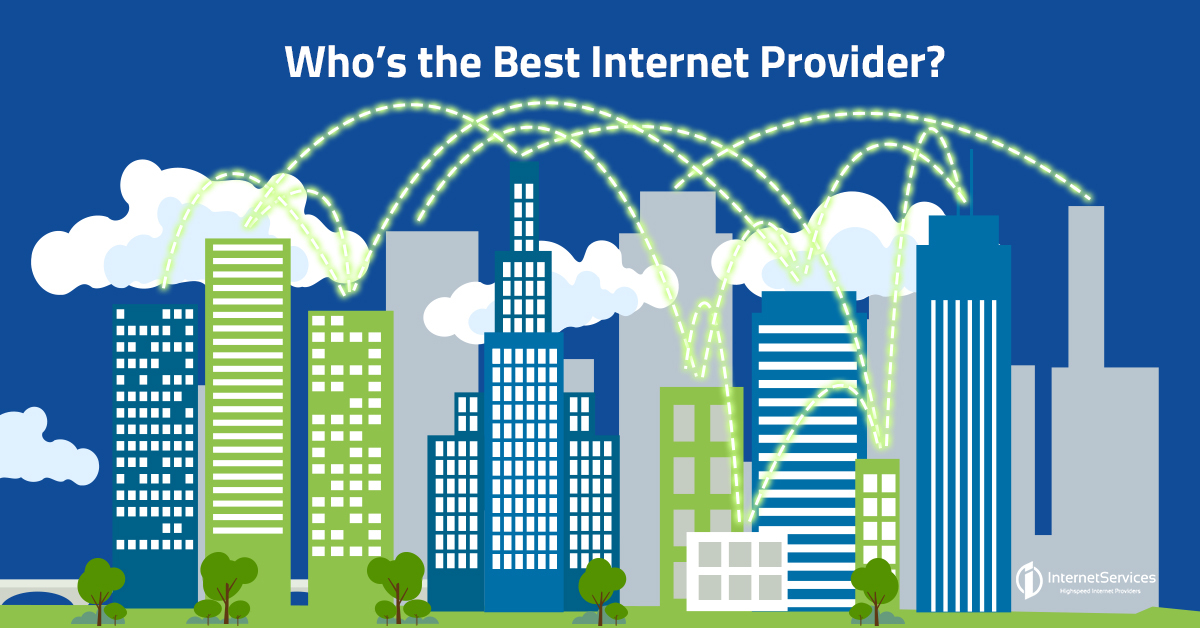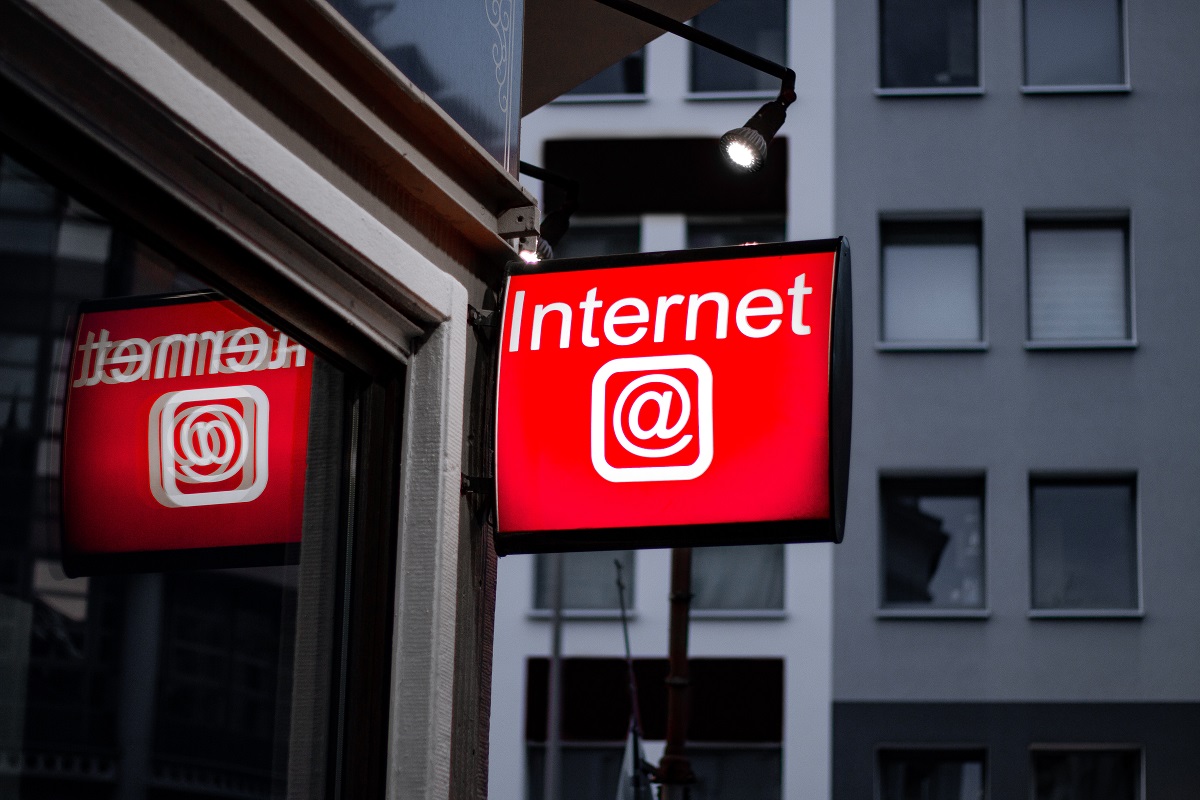Who’s the Best Internet Provider?
Sat Dec 01 2018
|netservicesWho’s the Best Internet Provider? To access the internet, you need an internet provider. An internet service provider, or ISP, allows you to get online to work, connect, learn, and have fun

Who’s the Best Internet Provider?
To access the internet, you need an internet provider. An internet service provider, or ISP, allows you to get online to work, connect, learn, and have fun.
So, who’s the best internet provider? It changes depending on a few factors. For example, your internet plan should include high speed internet because fast speed means shorter wait times. You may also consider a cheap internet provider, or one that bundles with other plans such as phone service, video streaming, or cable TV.
Another important question: Is it for business or home? Business and home internet have different demands because business usually requires greater internet speed. The average family may not require unlimited data and a crazy-good internet connection speed, but business internet does.
For home internet, consider providers that deliver everything you need for a low price. Most families only need a low data cap and enough internet connection to work across a few devices at once.
Whatever your needs are, there’s an internet plan for you. This guide will cover questions about internet service and offer suggestions on what your internet needs should look like.
Who are the Best Internet Providers by Area?
We cover ISP companies across North America, including the different types of internet they provide. Providers may offer different features depending on your service area. The actual speed listed on their websites will vary depending on geography, personal connection, and what service type you have (fixed wireless internet, DSL internet, cable internet, or whatever else you may have).
Most internet service providers we cover have a link to search your address for service on their home page. Alternatively, you can search by your zip code on our homepage.
Which internet service provider is the fastest in my area?
Fiber optic internet service is the fastest internet, but it isn’t available everywhere. Broadband internet offers slower speeds but is available in almost any metropolitan area. Despite the speed cost, tons of city dwellers prefer broadband providers for their accessibility.
Rural areas often only have access to satellite internet providers. They will be the slowest, but it’s hard for providers to lay the groundwork for equipment in those areas. Despite limited internet options, a rural area can still enjoy fast internet from a good satellite provider.
What factors should I consider when choosing an internet service provider?
Your location is the main factor when choosing an internet provider. Once you’ve narrowed down what’s available in your area, you’ll want to choose a plan based on price (both installation and monthly pricing) and speed.
Be sure to read the fine print. Many internet services offer low introductory pricing, but those rates will expire, and you may end up paying double what you were originally for the remainder of your contract or when you renew your contract.
Speed varies by service and plan. When choosing a speed, you should think about what you’ll be doing on the internet and how many devices you’ll need to have connected simultaneously. If you’re using it to browse web pages and send simple emails on one device at a time, a plan with a lower download speed will suffice.
On the other end of the spectrum, you’ll want a much faster download and upload speed, and a stronger connection, if you’re planning on gaming and streaming content. Especially if you want to video chat with someone across the world at the same time.
If you choose a plan with a data limit, you’ll need to keep that in mind as well. Traditionally, standard-definition movies are between 1 and 2GB (gigabytes) in file size, and HD movies fall between 3 to 5GB.
If you have other questions, check out these 25 questions to ask your internet service provider.
Are there any free internet service providers?
There are a few free internet service providers. Not surprisingly, these providers typically have low speeds. Many only allow you to utilize their connections for a few hours each month.
- NetZero offers 10 hours of free dial-up internet access.
- Juno offers 10 hours of free dial-up internet.
- FreedomPop offers a hotspot with 500 MB free every month. This is best for someone who occasionally needs internet access a couple of times per month for short periods of time.
What is the best way to compare internet service providers?
The Federal Communications Commission offers Broadband and Internet Guides for consumer guidance protection. However, these guides do not contain comparison charts to compare providers in a given area. That’s where InternetServices.com comes in. Type in your zip code on our home page, and we’ll provide internet service options in your area.
How does satellite internet service work?
Satellite Internet works by connecting a relatively small satellite dish on the ground that transmits and receives from an orbiting geostationary satellite 22,300 miles above Earth’s equator. The average speed for satellite internet is 10 Mbps per second, which is 178 times faster than a dial-up modem.
What company is the best satellite internet service provider?
HughesNet consistently receives good customer reviews and offers a monthly premium plan of 60 GB. It has packages that fit every budget and lifestyle, and its Gen4 service offers some of the highest speeds in satellite broadband.
What satellite internet providers offer service for my home?
Because internet service is beamed through satellites covering the United States, virtually any home has access to satellite equipment. You just need someone to install the receiver. The following companies offer satellite internet for homes:
- Frontier Communications offers satellite internet in three packages ranging from 10/1 Mbps to 15/2 Mbps between $40/month and $100/month.
- Verizon offers internet service wherever there is a 4G LTE (Long Term Evolution) signal.
- AT&T offers satellite internet through Exide—although the satellite package doesn’t offer the other bells and whistles it offers with other packages, it does include spam and anti-virus filters and is a good option for people in rural areas.
- Rise Broadband offers an LTE option similar to satellite internet service in rural areas. Customers have access to 50 Mbps in rural areas in Illinois, Texas, Nebraska, Idaho, Iowa, and Oklahoma.
- Exede offers download speeds up to 15 Mbps and an upload speed up to 3 Mbps.*
- HughesNet offers free standard installation and download speeds up to 25 MBPS and an upload speed up to 3 Mbps.**
Which satellite internet providers provide service for businesses?
Here’s a short list of some of the best business internet service providers:
- Frontier Communications
- AT&T
- Rise Broadband (LTE option)
- Exede*
- HughesNet**
Which satellite providers offer service to rural areas?
- Frontier Communications
- Verizon (LTE option)
- AT&T
- Rise Broadband (LTE option)
- Exede*
- HughesNet**
Fiber Optic Internet Services
Fiber optic internet networks are more reliable and transmit data quicker than cable and satellite. Fiber optics transfer large amounts of data quickly and seamlessly using light rather than electricity. Fiber optic cables are made from glass or plastic rather than metal, allowing the data to travel great distances without degrading.
The only major problem with fiber internet services is the cost and requirements of laying and implementing new lines. Still, as providers spend more to maintain aging copper wires, they may gradually switch to laying fiber optic ones.
What internet providers offer fiber optic services?
- Armstrong Wire offers Dedicated Internet Access (DIA) services providing businesses a reliable, symmetrical connection to the company’s advanced fiber optic network.
- AT&T Fiber gives you a connection up to 1000 Mbps (that translates to downloading 25 songs in one second, a television show in under four seconds, or a 90 HD movie in under 34 seconds). AT&T has the largest fiber network based on publicly available data for the top fiber providers in the AT&T operating footprint.
- Frontier Communications offers 30/30Mbps fiber-optic internet access for 24.99/month through their FiOS service. Customers receive free installation and activation on new services. The company boasts a highly reliable connection with a 99.9-percent uptime and speeds of 150 Mbps in some areas.
- GigaONE is a fiber optic service in seven markets across the country. The company continues to add new markets with GigaONE access. GigaONE’s speeds allow customers to download an HD movie in 60 seconds or less, and download 100 songs in four seconds. Cable ONE also provides fiber optic internet for businesses.
- Mediacom has a coast-to-coast fiber optic network Gigabit+ that brings fast speeds to towns in rural America.
- Northland Cable has fiber optic access through Northland Fiber Direct. For around $50/month, they can surf, stream, download, and game faster with speeds of 100 Mbps.
- Shentel customers in the mid-Atlantic region can experience fiber optic internet speeds up to 100 gigabits per second.
- Verizon Fios delivers speeds up to five times faster than cable. Most customers can get internet access with speeds up to 500/500 Mbps. Speeds up to 750/750 Mbps are available in parts of New York, New Jersey, Philadelphia, Boston, and Norfolk, Virginia. Customers can also choose to bundle their internet with phone and telephone options for Fios. You can download apps to watch shows and set your DVR, a 30-day worry-free guarantee allowing you to try out the service to see if it’s a good fit, 24/7 tech support, and gain points on Verizon’s rewards program and trade them in for gift cards, vouchers, and other items from your favorite stores.
- Vivint offers fiber optic intent services with speeds up to 100 Mbps for around $60/month. The company also allows customers to sign up for a fixed price-meaning the monthly premium won’t get up when your original sign-on promotional period has ended.
- Wave Broadband helps customers experience up to 100 Gbps internet speeds, but the company currently doesn’t offer fiber optic internet services for residences.
- Windstream uses fiber optic lines and runs them directly into their customers’ homes.
- Xfinity from Comcast offers fiber optic internet in seven states and plans to unveil it in six others soon. Customers can choose from varying plans up to 250 Mbps depending on how many devices are used simultaneously in a household.
- Zito Media allows you to sign up for fiber optic internet services for around $50/month for 100 Mbps of speed. Multi-tasking customers who use many devices simultaneously may choose a higher speed plan up to 200 Mbps.



